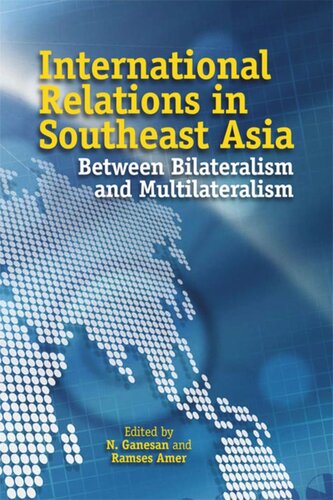

Most ebook files are in PDF format, so you can easily read them using various software such as Foxit Reader or directly on the Google Chrome browser.
Some ebook files are released by publishers in other formats such as .awz, .mobi, .epub, .fb2, etc. You may need to install specific software to read these formats on mobile/PC, such as Calibre.
Please read the tutorial at this link: https://ebookbell.com/faq
We offer FREE conversion to the popular formats you request; however, this may take some time. Therefore, right after payment, please email us, and we will try to provide the service as quickly as possible.
For some exceptional file formats or broken links (if any), please refrain from opening any disputes. Instead, email us first, and we will try to assist within a maximum of 6 hours.
EbookBell Team

4.8
104 reviews"For observers outside of Southeast Asia, this book opens up a world of conflicts, rivalries, and reconciliations that is terra incognita. It is easy to assume that all is well under the consensual Association of Southeast Asian Nations (ASEAN) umbrella. These expert authors detail the sometimes stormy and often tense bilateral relationships in the region. In doing so they delineate the profound contribution that ASEAN has made to regional security and cooperation, but at the same time they show the limits of multilateralism as a mode of conflict resolution. Etel Solingen's introductory essay provides an extensive analytical vocabulary for regional politics, and the other authors have fascinating stories to tell about the interrelationships of Southeast Asia’s states since 1975." -Brantly Womack, Hugh S. & Winifred B. Cumming Memorial Professor of International Affairs, University of Virginia "The international relations of Southeast Asia has been so dominated by academic studies focusing on the Association of Southeast Asian Nations that 'everyday interstate politics' has been eclipsed. This volume by N. Ganesan and Ramses Amer redresses this neglect. International Relations in Southeast Asia: Between Bilateralism and Multilateralism includes nine empirically rich case studies focused on the management of persistent bilateral tensions involving eight of the region’s states. This collection will appeal to a wide audience of students, academics, and regional security specialists due to the diversity and expertise of its contributors and its up-to-date analysis." - Carlyle A. Thayer, Professor, The University of New South Wales at the Australian Defence Force Academy, Canberra "The volume edited by Ganesan and Amer is a welcome departure from the academic theoretical focus on the regionalist enterprise of ASEAN. As the aspirational goal of an ASEAN community becomes increasingly elusive - if not illusory - this book explains in real policy terms the challenge to the political efficacy of ASEAN’s multilateral fora, constrained as they are by consensus, non-interference, and fiercely defended state sovereignty. In detailed and sharply etched studies of the key bilateral interests and issues at the state level, the authors demonstrate that rather than recourse to the multilateral diplomatic platform represented by ASEAN, the preferred national mechanisms for the critical areas of cooperation and conflict will continue to be bilateral and the practies of traditional statecraft." - Donald E. Weatherbee, Russell Distinguished Professor Emeritus, University of South Carolina